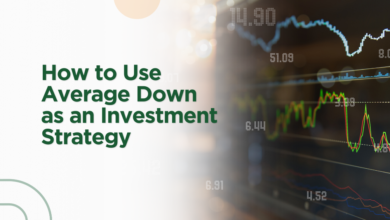Islamic Economics
-

The Distinction in Sharia Between Gambling and Business Risk
Ethical financial transactions in Islamic economics are based on the distinction between haram (prohibited) and halal (permissible) business practices. A crucial component of this distinction is being aware of the basic distinctions between gambling which is strictly forbidden by Sharia law and business risks such as those found in legal commercial endeavors. In order to analyze these distinctions this article…
Read More » -

The Advantages of Islamic Human Capital Management for Business
Organizations are increasingly embracing models that combine moral values with operational effectiveness in the dynamic global business environment. One such approach is Islamic Human Capital Management (IHCM) which is ideally positioned to promote corporate success by coordinating human capital plans with Islamic principles. This article examines the ways in which IHCM helps companies especially in promoting ethical behavior productivity and…
Read More » -

What to Do When Receiving a Pay Rise: How to Use it to Reach Financial Freedom
Receiving a pay rise marks a financial milestone of an employee’s life. However, a pay rise can also come with it’s own financial challenge and problem.Sometimes it’s very tempting to spend the additional money down the drain by celebrating, rising the lifestyle standard, or even get into debt. At the other side, this pay rise can also being used to…
Read More » -

Why Crowdfunding is a Good Investment for Beginners
Investing is becoming an increasingly popular talking points in recent times, especially with increasing financial literations amongst people. However, for beginners, the world of investing can often seem intimidating and very risky. One of alternative solutions to overcome these challenges is crowdfunding. Crowdfunding offers easiness, practicality, and attractive return as value propositions on it’s investment making it an ideal investment option…
Read More » -

What are Potential Side Hustles for College Students?
Commonly college students look for ways to supplement their income without sacrificing their academic performance. There are several reasons for doing this including covering living expenses tuition costs or simply saving money. Establishing a flexible side business is the best way to continue pursuing a college degree while developing entrepreneurial skills. Some possible side gigs that are especially appropriate for…
Read More » -

Silver Investment: An Alternative to Gold
A common tactic to protect wealth from inflation and unstable economic conditions is to invest in precious metals. Although gold is frequently highlighted as the most desirable precious metal for investments silver is becoming a very attractive and unique substitute. Silver presents investors with intriguing prospects due to its low cost and rising industrial demand which reflects its inherent value.…
Read More » -

The Urgency of Owning Cash-Generating Assets According to Robert Kiyosaki
Robert Kiyosaki, a billionaire and author of Rich Dad Poor Dad and a billionaire, frequently talks about the importance of working for assets rather than money. Assets that produce cash flow and increase in value can help people become financially independent and break free from reliance on their jobs in Kiyosaki views. This article will examine Kiyosaki’s definition of assets…
Read More » -

Differences Between Bitcoin and Altcoins
Cryptocurrencies have emerged as one of the most exciting investment opportunities in the past decade. Among thousands of digital currencies, Bitcoin remains the primary choice for many, but altcoins—alternatives to Bitcoin—also offer unique innovations and opportunities. To make informed investment decisions, it is essential to understand the fundamental differences between Bitcoin and altcoins. History and Origins Bitcoin was introduced in…
Read More » -

How to Use Average Down as an Investment Strategy
Average down is an investment strategy where investors purchase additional units of an asset after its price declines. The goal is to lower the average purchase price, making it easier to break even as prices recover. This strategy is often favored by long-term investors who are confident in the future prospects of their holdings. However, implementing this approach requires careful…
Read More » -

Trading Volume: How to Use It in Stock Analysis
Trading volume is one of the key indicators in stock market analysis. For investors and traders, understanding the role of trading volume can help in making more informed investment decisions. This article explains what trading volume is, why it is important in stock price analysis, and how to incorporate it into your investment strategy. What Is Trading Volume? Trading volume…
Read More »

